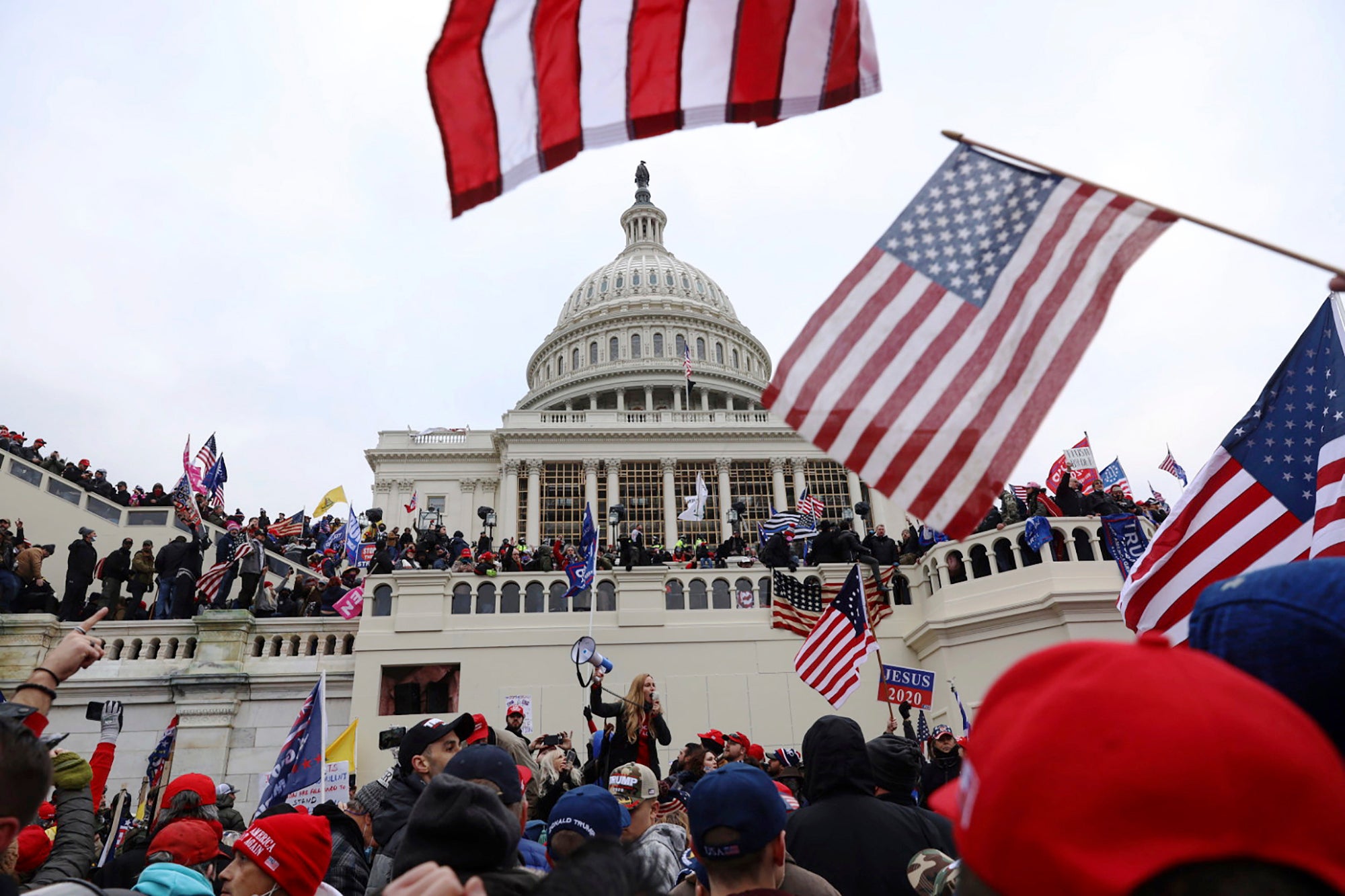As an expert on US militias, I know about the psychology of pro-Trump rioters. Biden should too
US domestic militias all have one thing in common – a belief that they alone understand how the country should be run


Your support helps us to tell the story
From reproductive rights to climate change to Big Tech, The Independent is on the ground when the story is developing. Whether it's investigating the financials of Elon Musk's pro-Trump PAC or producing our latest documentary, 'The A Word', which shines a light on the American women fighting for reproductive rights, we know how important it is to parse out the facts from the messaging.
At such a critical moment in US history, we need reporters on the ground. Your donation allows us to keep sending journalists to speak to both sides of the story.
The Independent is trusted by Americans across the entire political spectrum. And unlike many other quality news outlets, we choose not to lock Americans out of our reporting and analysis with paywalls. We believe quality journalism should be available to everyone, paid for by those who can afford it.
Your support makes all the difference.As the world anxiously waits for Joe Biden's inauguration, in hopes that there is not a repeat of the 6 January violence at the US Capitol, questions remain about the insurrection and the people involved that will take quite some time to answer.
One question we can start to address, however, is how people who style themselves as patriots, super citizens and defenders of democracy can simultaneously have such a strong anti-government stance that they conducted a disjointed but frightening insurrection that endangered members of Congress.
I have studied US domestic militias for more than a decade. Different groups, including militias, were involved in the riot, and each group’s precise motivation may have been slightly different. All nonetheless shared certain commonalities ranging from their support of Donald Trump, and a belief that the election outcome was somehow fraudulent, to a desire to personally defend the country as they envision it should be: isolationist, fiscally conservative, and managed by small government.
Their notions of what constitutes an ideal United States of America is heavily rooted in a story of this nation's founding – one that is still taught in many schools – where white men tamed the land (and the native peoples who possessed it) through nothing but hard work, individual determination, and reliable firearms. They believe that the founding fathers essentially were infallible heroes who created a near-perfect Constitution, and believe it is the responsibility of every true American to strive to uphold their legacy today.
In spite of this reverence for the Constitution and those who created it, militia members are, at best, skeptical of contemporary politicians, especially at the federal level, believing most politicians to be inherently corrupt and the rest easily corrupted by the system once elected. They believe that it is not just their prerogative, but also their responsibility, to constantly remind politicians that “they serve us [the citizens], and not the other way around”, as several of my interviewees noted. They further believe that without such monitoring, the country would quickly fall into outright tyranny. From their perspective then, there is nothing more patriotic than being a perpetual thorn in the government’s side as they try to hold individual lawmakers accountable while they uphold this nostalgic vision of the past.
This belief structure entails an insistence that militia members have special insight into what the country should “really” be or what the founders “really” intended. They see themselves as being better-read and better-researched than the vast majority of Americans, especially Democrats or others who generally disagree with them. This perspective is perhaps most exemplified in the ideology of the Three Percenters, a group that falsely believes only 3 per cent of the population fought during the American Revolution; that, in other words, only a small sliver of the population need to be ‘real’ patriots in order to change the course of the country.
Videos of some insurrection participants sounding genuinely mystified at being stopped or tear gassed by police demonstrate that they believed their actions to be morally justified, as do other insurrectionists’ insistence that they were working under Trump’s orders or at least his support. Some insurrectionists captured in the compiled footage can be heard loudly confirming that their intent was to address supposedly-traitorous members of Congress as they variously chanted “treason” inside the Capitol, shouted “this is our chair”, referencing Mike Pence’s seat in the Senate, or yelled about their duty “to protect the Constitution of the United States against enemies foreign and domestic,” reflecting their belief that at least some members of Congress are working against true American interests.
Moving forward from the ideological, not just political, divide reflected in the Capitol incursion will be a lengthy task. Biden’s administration knows it has a tough task again to repair this split. It is one that, in my view, must involve not only conversations about nationalism, diversity, and how no one group has exclusive insight into what is best for the country’s future, but also must involve better fundamental education about the founding of the country. We too often educate about our collective successes and mythologize our past, but rarely formally confront our collective pitfalls. Doing so may help our efforts to avoid such stark divides in future generations.
Amy Cooter is a senior lecturer of Sociology at Vanderbilt University. She has studied domestic militias for more than a decade
Join our commenting forum
Join thought-provoking conversations, follow other Independent readers and see their replies
Comments